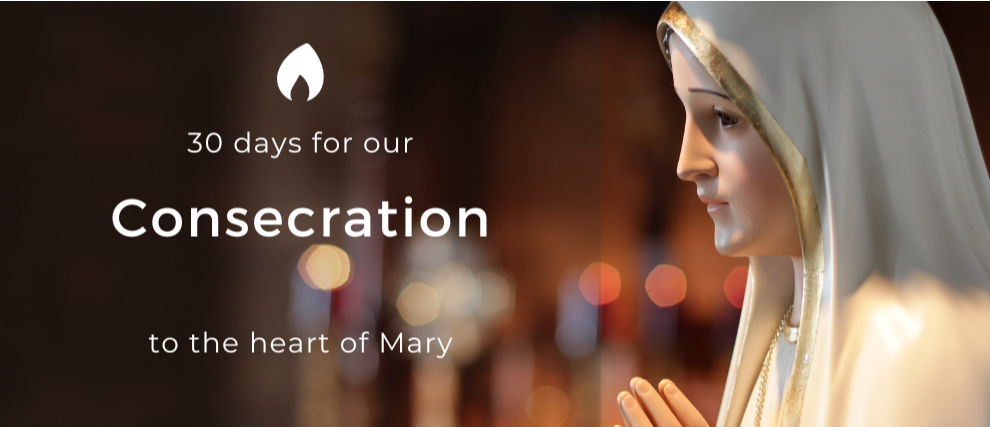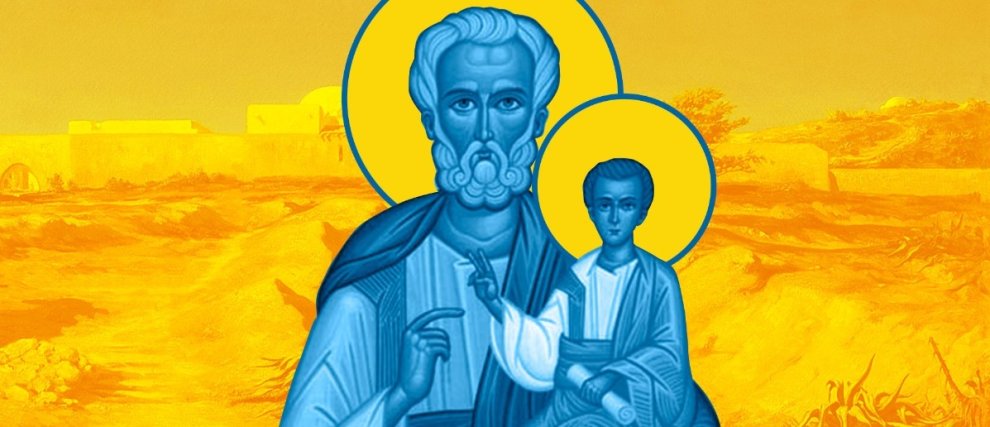Saint Basil
Biography of Basil of Caesarea
Basil was born in 330 in Caesarea in Cappadocia (present-day Turkey) to a truly Christian family. A true school of faith, this family saw the birth of several saints: Basil's brother, Gregory of Nysse, would also become a "Cappadocian father.” His sister was Saint Macrine. Basil, however, was not baptized until he was 25. He studied in Caesarea, then in Constantinople, and finally in Athens. There, he became friends with the future Saint Gregory of Nazianzus, a native of Cappadocia. Around 356, Basil returned to his hometown, where he was a rhetorician. Yet he quickly felt dissatisfaction with this life and changed his path, deciding to consecrate his existence to God. He testified: "One day, as I awoke from a deep sleep, I turned to the admirable light of the truth of the Gospel... and wept over my miserable life." Basil then led a life of prayer and listening to the Word of God. Attracted by asceticism, he undertook a journey through Syria, Egypt, Palestine and Mesopotamia to meet with monks. Upon his return, he retired in solitude and penance. He quickly received many disciples and founded monasteries for them.
In 364, the bishop of Caesarea, Eusebius, noted the excellent administration of the monasteries Basil founded. He was in need of good priests and convinced Basil to accept the priesthood. In 370, Basil became bishop of Caesarea, a position he held for eight years until his death. From then on, he carried out considerable pastoral work in his diocese, fighting against the heresies that were widespread at the time. He had a deep concern for the poor and the sick, for whom he founded hospices and hospitals. Bishop Basil worked to bring the churches of the East and the West closer together. At the same time, he pursued intense theological and literary activities. Consumed by penance and asceticism, Basil died on January 1, 379, not yet fifty years old.
Saint Basil was proclaimed Doctor of the Church in 1568 by Pope Pius V, which earned him special reverence in the Western Church, where he is celebrated on 2 January. In the East, he is considered one of the first great ecumenical doctors; he is defined in the Byzantine liturgy as a "light of the Church" and is called "great" for his doctrine and wisdom. Saint Basil is the patron saint of Cappadocia, hospital administrations, reformers, and the Basilian monks. He is also the patron saint of Russia and the famous Cathedral of Vasily the Blessed, also known as Saint Basil’s Cathedral on the Red Square in Moscow, is dedicated to him.
Discover other holy Fathers of the Church such as Saint John Chrysostom, Saint Gregory of Nazianzus, and Saint John of Damascus.
Spirituality of Saint Basil of Caesarea
Saint Basil was a great spiritual master and theologian. He is known to have developed the theology of the Trinity in response to those who did not accept the divinity of the Holy Spirit. He maintained that the Spirit is God too, and "must be counted and glorified with the Father and the Son."
Works of Saint Basil
Basil was recognized by his contemporaries for the literary perfection of his works and the clarity of his expression. During his lifetime, this talent for speaking earned him a great audience. Saint Basil the Great, though a difficult author, left writings of excellent quality. His works include:
- The homilies, the most famous of which are those concerning the six days of creation in Genesis (narrative called Hexameron).
- Letters: Saint Basil gave instructions concerning dogma, morality or asceticism.
- Works: in the Treatise of the Holy Spirit, Saint Basil sheds light on the Holy Trinity. In the Exhortation to Young Men on How to Benefit from Hellenic Letters, Basil emphasizes the usefulness of the study of classical Greek literature.
- The collections consist of the answers given by Saint Basil to various questions of the brethren. These Detailed Rules and Brief Rules served as the basis for the elaboration of monastic rules, including the Rule of Saint Benedict.
- Along with Gregory of Nazianze, Basil of Caesarea composed the Philocaly, an anthology of the works of Origen, then the Moral Rules.
Heritage of Saint Basil the Great
Saint Basil had a great influence in various fields:
- The organization of monastic life. Saint Basil founded many "brotherhoods" or communities of Christians consecrated to God. These were the first monasteries. He is at the origin of the great principles of monastic life: liturgical prayer, meditation of the Holy Scriptures, frequent recourse to the sacraments, manual labor and works of charity. These principles form the Rule of Saint Basil, which promotes the virtues of obedience and fraternal charity. Many ancient legislators were inspired by his experience, including Saint Benedict, who drew on the work of Basil to develop his rule. He considered Saint Basil his master.
- The formation of the liturgy. Basil was a wise “liturgical reformer”, he left a beautiful Eucharistic prayer and encouraged the Psalmody, thus renewing the interest in the Psalms.
- Teaching Christian morality and doctrine. Basil fought against Arian heresy and recalled the Church's teaching in matters of faith.
Social Ideas: Basil stressed several points such as the equality of men before God, the dignity of the person and the duty of mutual assistance.

